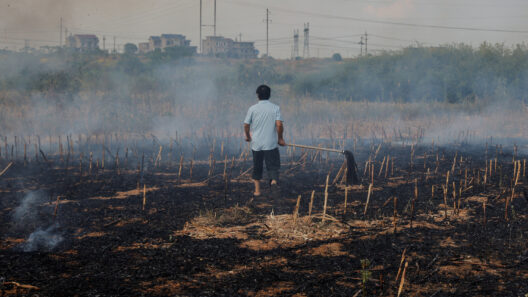Greece, a nation steeped in history and culture, is often romanticized for its sun-drenched beaches, azure seas, and vibrant landscapes. However, an exploration of the climate reveals far more than picturesque imagery; it offers a complex interplay of natural elements that shape this Mediterranean paradise. The climate of Greece is a crucial component in understanding its ecological footprints, agricultural practices, and, importantly, its vulnerability to climate change.
Situated at the crossroads of Europe, Asia, and Africa, Greece experiences a predominantly Mediterranean climate characterized by hot, dry summers and mild, wet winters. This climatic pattern is influenced by several geographic features, including the extensive coastline, myriad islands, and mountainous terrains. With this geographical diversity, Greece presents a fascinating tapestry of microclimates, each offering unique biodiversity and ecological systems.
Diving deeper into the Mediterranean climate, one can observe that summers typically extend from May to October, with average temperatures soaring above 30 degrees Celsius (86 degrees Fahrenheit). During this period, precipitation is scant, often contributing to drought conditions that can strain local water supplies and significantly impact agriculture. Farmers rely heavily on the summer sun to ripen their crops, yet as climate change accelerates, the reliability of such patterns begins to waver.
Conversely, winters are mild and relatively wet, particularly in the western regions of the country. The northern areas, particularly those bordering Albania and North Macedonia, can experience colder temperatures and even snowfall. These variations create intricate ecosystems; for example, the lush, green landscapes found in the north contrast sharply with the arid regions of the southern islands.
The influence of climate on agriculture in Greece cannot be overstated. Olive groves carpet the landscape, and vineyards thrive in the warm sun, producing some of the world’s most renowned wines. Yet, as temperatures rise and traditional rainfall patterns shift, these crops face unprecedented challenges. The push for sustainability becomes imperative: farmers are exploring organic practices, drought-resistant crops, and innovative irrigation methods to combat the emerging water scarcity.
Wildfires, an alarming manifestation of climate change, have become increasingly prevalent in Greece. The summer months, marked by extreme heat and prolonged drought, create a precarious situation for the nation’s forested areas. The 2007 and 2021 wildfires revealed the devastating impact of climate-induced disasters. Not only did they ravage extensive landscapes, but they also displaced communities, altered ecosystems, and released copious amounts of carbon dioxide into the atmosphere. The repercussions were not merely environmental but also socio-economic, with tourism—integral to Greece’s economy—suffering long-term consequences.
However, amidst these challenges lies hope and resilience. Greece has garnered attention for its commitment to renewable energy, particularly solar and wind power. The abundant sunlight and coastal winds create ideal conditions for harnessing clean energy. Plans are underway to transition towards a more sustainable energy grid, reducing reliance on fossil fuels. In essence, Greece is not just a beautiful locale but a burgeoning leader in the endeavor to combat climate change.
The marine ecosystem surrounding Greece further illustrates the delicate interplay between climate and environmental health. The Aegean and Ionian Seas are rich in biodiversity, hosting numerous species of fish and marine life. However, rising sea temperatures and acidification pose significant threats to these ecosystems. Overfishing exacerbates the situation, endangering marine species and disrupting the balance within these waters. Initiatives aimed at sustainable fishing and marine conservation are paramount to restoring and preserving the health of these crucial habitats.
Moreover, the impact of climate change on cultural heritage should not be overlooked. Greece’s ancient monuments, ranging from the Acropolis in Athens to the Minoan ruins of Crete, require significant attention and preservation efforts. The changing climate subjects these structures to erosion, salt damage, and other natural wear, creating an urgent need for preservation strategies. The intersection of culture and environment highlights the profound interconnection between mankind and nature, a relationship that must be nurtured and safeguarded.
In summation, the climate of Greece is a complex, multifaceted landscape that not only shapes the natural environment but also intricately links with the socio-economic fabric of the nation. As the world witnesses unprecedented climatic shifts, Greece stands at a critical juncture. The commitment to sustainable practices, innovative technologies, and conservation efforts will determine not just the fate of its stunning landscapes but also the endurance of its rich cultural heritage.
Exploring Greece’s climate is not merely an academic endeavor; it is a call to action. The allure of Mediterranean dreams offers an opportunity to reevaluate our relationship with the environment. A deeper understanding of the climatic intricacies of Greece can inspire a broader movement towards climate resilience and sustainability worldwide. In this narrative of climate and culture, the stories of the land and its people beckon an awakening—a shift towards stewardship, awareness, and a shared responsibility for the planet.







